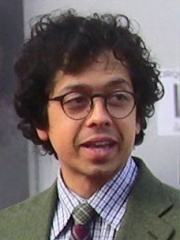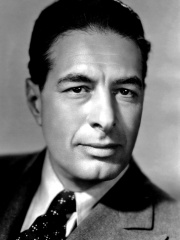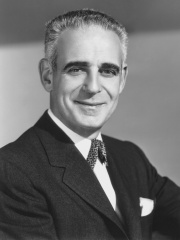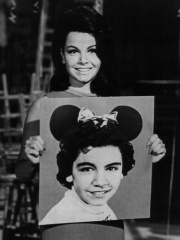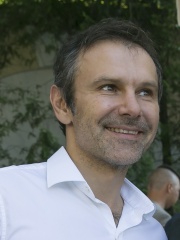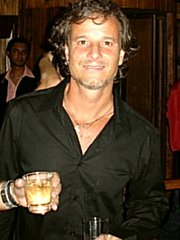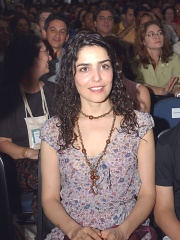ACTOR
Ana Paula Arósio
1975 - Today

 Ana Paula Arósio
Ana Paula Arósio
Ana Paula Arósio (born 16 July 1975) is a Brazilian former actress and model. She has lived in Swindon, Wiltshire, England since 2015. Read more on Wikipedia
Her biography is available in 20 different languages on Wikipedia (up from 18 in 2024). Ana Paula Arósio is the 6,972nd most popular actor (up from 7,304th in 2024), the 830th most popular biography from Brazil (up from 846th in 2019) and the 44th most popular Brazilian Actor.
Memorability Metrics
Page views of Ana Paula Arósio by language
Among ACTORS
Among actors, Ana Paula Arósio ranks 6,972 out of 13,578. Before her are Suzanne Clément, Geoffrey Arend, Alfonso Ribeiro, Alfredo Castro, Irving Pichel, and Paul Stewart. After her are Hu Jun, Evelyn Brent, Annette Funicello, Lionel Jeffries, Kathleen Robertson, and Mady Christians.
Most Popular Actors in Wikipedia
Go to all RankingsSuzanne Clément
1969 - Present
HPI: 52.02
Rank: 6,967
Geoffrey Arend
1978 - Present
HPI: 52.01
Rank: 6,968
Alfonso Ribeiro
1971 - Present
HPI: 52.01
Rank: 6,969
Alfredo Castro
1955 - Present
HPI: 52.01
Rank: 6,970
Irving Pichel
1891 - 1954
HPI: 52.01
Rank: 6,971
Paul Stewart
1908 - 1986
HPI: 52.01
Rank: 6,972
Ana Paula Arósio
1975 - Present
HPI: 52.00
Rank: 6,973
Hu Jun
1968 - Present
HPI: 52.00
Rank: 6,974
Evelyn Brent
1895 - 1975
HPI: 52.00
Rank: 6,975
Annette Funicello
1942 - 2013
HPI: 52.00
Rank: 6,976
Lionel Jeffries
1926 - 2010
HPI: 51.99
Rank: 6,977
Kathleen Robertson
1973 - Present
HPI: 51.99
Rank: 6,978
Mady Christians
1892 - 1951
HPI: 51.99
Rank: 6,979
Contemporaries
Among people born in 1975, Ana Paula Arósio ranks 265. Before her are Wopke Hoekstra, Míchel, James D'Arcy, Svyatoslav Vakarchuk, Luciano Burti, and Christian Corrêa Dionisio. After her are Yoshiki Maeda, Kazuyoshi Funaki, Blaise Nkufo, Hugh Howey, Jun Maeda, and Laurențiu Reghecampf.
Others Born in 1975
Go to all RankingsWopke Hoekstra
POLITICIAN
1975 - Present
HPI: 52.11
Rank: 259
Míchel
SOCCER PLAYER
1975 - Present
HPI: 52.10
Rank: 260
James D'Arcy
ACTOR
1975 - Present
HPI: 52.10
Rank: 261
Svyatoslav Vakarchuk
SINGER
1975 - Present
HPI: 52.06
Rank: 262
Luciano Burti
POLITICIAN
1975 - Present
HPI: 52.03
Rank: 263
Christian Corrêa Dionisio
SOCCER PLAYER
1975 - Present
HPI: 52.03
Rank: 264
Ana Paula Arósio
ACTOR
1975 - Present
HPI: 52.00
Rank: 265
Yoshiki Maeda
SOCCER PLAYER
1975 - Present
HPI: 52.00
Rank: 266
Kazuyoshi Funaki
SKIER
1975 - Present
HPI: 51.99
Rank: 267
Blaise Nkufo
SOCCER PLAYER
1975 - Present
HPI: 51.93
Rank: 268
Hugh Howey
WRITER
1975 - Present
HPI: 51.92
Rank: 269
Jun Maeda
WRITER
1975 - Present
HPI: 51.86
Rank: 270
Laurențiu Reghecampf
SOCCER PLAYER
1975 - Present
HPI: 51.86
Rank: 271
In Brazil
Among people born in Brazil, Ana Paula Arósio ranks 830 out of 2,236. Before her are Marcos Paulo (1977), Luciano Burti (1975), Christian Corrêa Dionisio (1975), Fidélis (1944), Luís Oliveira (1969), and Magno Alves (1976). After her are Rôni (1977), Emerson Palmieri (1994), Vagner da Silva Sarti (1978), Rosaly Lopes (1957), Marcello Novaes (1962), and Wanderlei Silva (1976).
Others born in Brazil
Go to all RankingsMarcos Paulo
SOCCER PLAYER
1977 - Present
HPI: 52.05
Rank: 824
Luciano Burti
POLITICIAN
1975 - Present
HPI: 52.03
Rank: 825
Christian Corrêa Dionisio
SOCCER PLAYER
1975 - Present
HPI: 52.03
Rank: 826
Fidélis
SOCCER PLAYER
1944 - 2012
HPI: 52.02
Rank: 827
Luís Oliveira
SOCCER PLAYER
1969 - Present
HPI: 52.01
Rank: 828
Magno Alves
SOCCER PLAYER
1976 - Present
HPI: 52.00
Rank: 829
Ana Paula Arósio
ACTOR
1975 - Present
HPI: 52.00
Rank: 830
Rôni
SOCCER PLAYER
1977 - Present
HPI: 51.97
Rank: 831
Emerson Palmieri
SOCCER PLAYER
1994 - Present
HPI: 51.96
Rank: 832
Vagner da Silva Sarti
SOCCER PLAYER
1978 - Present
HPI: 51.95
Rank: 833
Rosaly Lopes
ASTRONOMER
1957 - Present
HPI: 51.93
Rank: 834
Marcello Novaes
ACTOR
1962 - Present
HPI: 51.92
Rank: 835
Wanderlei Silva
MARTIAL ARTS
1976 - Present
HPI: 51.92
Rank: 836
Among ACTORS In Brazil
Among actors born in Brazil, Ana Paula Arósio ranks 44. Before her are Ivete Sangalo (1972), Adriana Esteves (1969), Letícia Sabatella (1971), Juliana Paes (1979), Lília Cabral (1957), and Nathalia Dill (1986). After her are Marcello Novaes (1962), Daniela Escobar (1969), Cristiana Oliveira (1963), Lateef Crowder dos Santos (1977), Fábio Assunção (1971), and Reynaldo Gianecchini (1972).
Ivete Sangalo
1972 - Present
HPI: 52.91
Rank: 38
Adriana Esteves
1969 - Present
HPI: 52.79
Rank: 39
Letícia Sabatella
1971 - Present
HPI: 52.31
Rank: 40
Juliana Paes
1979 - Present
HPI: 52.26
Rank: 41
Lília Cabral
1957 - Present
HPI: 52.19
Rank: 42
Nathalia Dill
1986 - Present
HPI: 52.13
Rank: 43
Ana Paula Arósio
1975 - Present
HPI: 52.00
Rank: 44
Marcello Novaes
1962 - Present
HPI: 51.92
Rank: 45
Daniela Escobar
1969 - Present
HPI: 51.72
Rank: 46
Cristiana Oliveira
1963 - Present
HPI: 51.46
Rank: 47
Lateef Crowder dos Santos
1977 - Present
HPI: 50.56
Rank: 48
Fábio Assunção
1971 - Present
HPI: 50.52
Rank: 49
Reynaldo Gianecchini
1972 - Present
HPI: 50.00
Rank: 50

